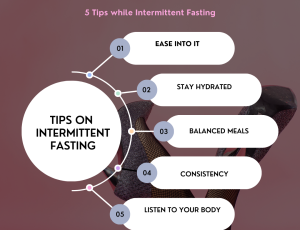
Fish Not Fowl: Pescatarian living
In recent years, dietary habits have shifted significantly as more people seek healthier and more sustainable ways to eat. Among the various options, the pescatarian lifestyle has emerged as a popular choice, striking a balance between the vegetarian and omnivorous diets. By incorporating fish and seafood into a predominantly plant-based regimen, the pescatarian diet offers a unique blend of benefits that cater to diverse nutritional needs.
What is a Pescatarian Diet?
A pescatarian diet primarily consists of plant-based foods, similar to a vegetarian diet, but includes fish and seafood. While pescatarians avoid meat from land animals such as poultry, beef, and pork, they enjoy a variety of vegetables, fruits, grains, legumes, nuts, and seeds, complemented by the inclusion of seafood.
Health Benefits of the Pescatarian Lifestyle
Nutritional Balance: The pescatarian diet provides a more extensive range of nutrients compared to a strictly vegetarian diet. Fish and seafood are rich in omega-3 fatty acids, high-quality protein, and essential vitamins and minerals, which are sometimes challenging to obtain solely from vegetarian sources.
Cardiovascular Health: Omega-3 fatty acids, prevalent in fish like salmon, mackerel, and sardines, are renowned for their heart health benefits. These nutrients help reduce inflammation, lower blood pressure, and decrease the risk of heart disease, offering an advantage over a vegetarian diet.
Protein Variety: While vegetarian diets rely heavily on plant proteins like beans, lentils, and tofu, the pescatarian lifestyle incorporates seafood, providing a complete protein source that includes all essential amino acids, aiding muscle maintenance and growth.
Weight Management: The pescatarian diet can be effective for weight management, combining the low-calorie density of plant foods with the satiating properties of fish. This approach can help control appetite and support weight loss or maintenance more effectively than a vegetarian diet alone.
Lower Chronic Disease Risk. Both pescatarian and vegetarian diets are associated with a lower risk of chronic diseases such as diabetes, certain cancers, and obesity. The additional anti-inflammatory and cardiovascular benefits of fish further enhance the pescatarian diet’s protective effects.
Environmental Considerations
Adopting a pescatarian lifestyle can be more environmentally sustainable than a traditional omnivorous diet, though it requires mindful choices. Overfishing and unsustainable fishing practices pose significant environmental challenges. Therefore, selecting sustainably sourced seafood is crucial. Certifications like the Marine Stewardship Council (MSC) label ensure that your seafood choices support healthy marine ecosystems.
Practical Tips for Adopting a Pescatarian Lifestyle
- Transition Gradually: If you are transitioning from a vegetarian diet, start by incorporating fish into your meals a couple of times a week. Gradually replace vegetarian protein sources with seafood to ease into the pescatarian lifestyle.
- Diversify Your Diet: To keep meals exciting, experiment with various recipes. Enjoy dishes such as grilled salmon with quinoa, shrimp and vegetable stir-fry, or tuna and avocado salad, blending the best of vegetarian and seafood cuisines.
- Stay Informed About Seafood Choices: Educate yourself about the best types of fish to include in your diet. Opt for nutrient-rich options like salmon, sardines, and trout, while limiting consumption of larger fish high in mercury, such as swordfish and king mackerel.
- Monitor Nutrient Intake: While the pescatarian diet is nutritionally robust, some individuals may need supplements, particularly for nutrients like vitamin B12 and iron, which are abundant in vegetarian diets but can vary with seafood choices. Consulting a healthcare provider can help ensure all nutritional needs are met.
- Support Sustainable Practices: Whenever possible, purchase fish from local and sustainable sources. This not only supports local fisheries but also encourages environmentally responsible fishing practices.
With that being said…
The pescatarian lifestyle offers a well-rounded dietary approach that bridges the gap between vegetarian and omnivorous diets. By combining the health benefits of plant-based foods with the nutritional advantages of fish and seafood, pescatarians can enjoy a balanced and fulfilling diet. Whether you’re looking to enhance your overall health, manage your weight, or make more sustainable food choices, the pescatarian lifestyle presents a flexible and nutritious option. Embrace the best of both worlds and experience the myriad benefits that this lifestyle has to offer.












web site
Very interesting topic, appreciate it for posting.Expand blog
lahelenamae
thank you